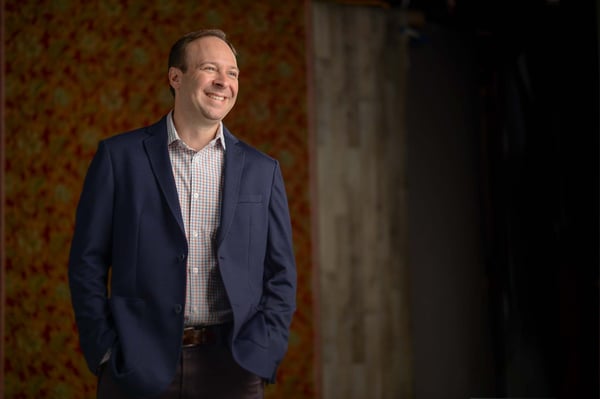
Many of David Cohn’s life choices have been dramatic about-faces, such as when he moved to Guatemala from the U.S. to join the Peace Corps after college, or when he later left the nongovernmental-organization world to take a job at a global management consultancy, Corporate Executive Board.
Only recently has Cohn figured out how to marry his sense of purpose and pragmatism, founding telepsychiatry company Regroup in 2011. Regroup uses videoconferencing to bring counseling services to communities where counselors are scarce.
Access to mental health care is an area that’s dear to Cohn, who has benefited from therapy since he was a North Shore teen. It also is one that is connecting with the marketplace: Regroup’s clinicians give 11,000 video consultations in 20 states every month, and the company has raised $14 million from investors who are impressed both by its model and Cohn’s devotion. “Founders must have passion and perseverance. David has both in spades,” says former Walgreens CEO Greg Wasson, a Regroup investor.
Regroup almost didn’t happen. After co-founding the company with a classmate at IE Business School in Madrid, Cohn moved back to Chicago to start the business in earnest in 2012, first attempting to sell its services directly to patients. (The co-founder left the company prior to Cohn’s return home.) The business didn’t break through until Cohn hired a chief technology officer and chief clinical officer and pivoted Regroup’s sales strategy by offering the service to health systems that pay for it on behalf of their patients.
Cohn found that customers such as OSF Healthcare and Oak Street Health were embracing something he’d learned while in the Peace Corps: “Mental health and health care should be treated holistically. If you’re serious about helping people live healthier, better lives, you have to bring behavioral health into the mix.”
Regroup has grown swiftly since then, expanding to 35 employees in its Ravenswood office, along with 40 full-time clinicians. And Cohn has finally found a venture where he doesn’t have to choose between service to others and enterprise.
“The opportunity to help solve the capacity issues in mental health and also build a sustainable business—it’s pretty satisfying,” he says.
Story by Steve Hendershot originally published by Crain's Chicago Business.
.png?width=170&height=100&name=Array_rgb%20(1).png)